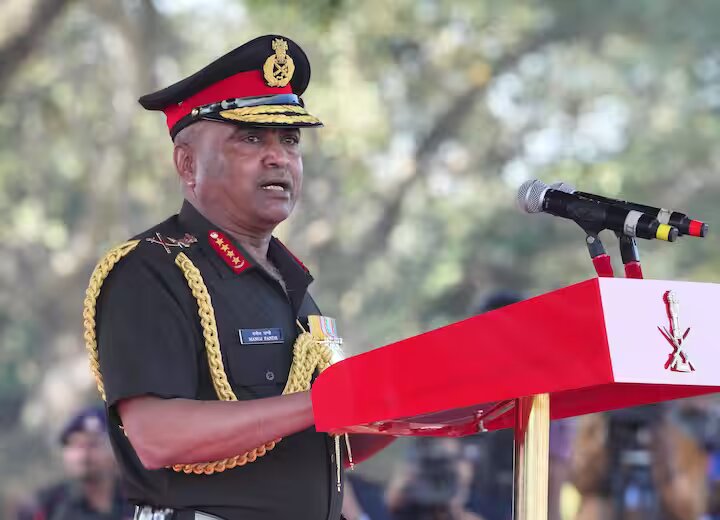Armed Forces Chief General Manoj Pande said Thursday that the situation in the Rajouri-Poonch area of Jammu and Kashmir is “cause for concern” and that his troops will not be allowed to break any laws that protect human rights.
He also said that the Army is studying the strategies used by the enemy in the area and that there were tactical lessons to be learned from the bad luck in the area, where 20 troops have been killed by terrorists in ambushes in the past year.
The terrorist group operating in the Rajouri-Poonch area is very well trained in many areas, including how to use weapons, set up ambushes, gather information, and record their attacks on a regular phone or body camera to later use for propaganda.
While talking to reporters at his yearly press conference before Army Day, Gen. Pande also said that Pakistan was helping rebels in the Poonch-Rajouri area and that security in the valley was getting better.
He said that the Army’s operations in the area “will continue in a relentless fashion.”
“There has been more terrorism in Rajouri and Poonch over the last five to six months.” This is something that worries me. In 2003, all terrorists were killed in that area, and there was peace there until 2017–18. As things return to normal in the valley, this is one place where our enemies have been active, helping terrorists and encouraging proxy tanzeems (groups) to work in this area, he said.
He gave numbers and said that in the last three years, 45 terrorists had been killed in the Jammu-Rajouri-Poonch area. Of these, 14 were killed in the countryside and six were killed during five failed attempts to get into the area by security forces. He said that 71 terrorists were killed in J&K over the past year, with 52 of them being killed in the valley.
The Army is worried that during the same time period, seven troops were killed in Kashmir and twenty were killed in ambushes in the Rajouri-Poonch area. Some of the soldiers were mutilated.
Intelligence gathering in Rajouri-Poonch
Gen. Pande said that operations in the Rajouri-Poonch area were being slowed down by a lack of human and electronic intelligence. He stressed the need to change direction in this area. It’s not just the Army’s job to gather information about people; the J&K Police and other groups, like the Intelligence Bureau (IB), are also responsible, he said.
Besides that, he said, the Army is working closely with other groups to build a stronger system for gathering and sharing information.
These were some of the nine points the Army chief made, which included stressing the need to reach out to local people and protect their rights.
He also said that the Army has increased the number of troops it has deployed and is redeploying some units that have been working in the area for the past five to seven months. Gen. Pande said that the Army wants to use technology better in its fight against terrorists.
Multiple terrorist attacks have happened in Poonch and Rajouri, including an ambush last month that killed four troops. This is why the Army chief said what he did.
Army adopts village of killed civilians
The Army chief also made it clear that people in dress will not be allowed to break anyone’s rights.
“Respect for human rights is what I tell commanders and soldiers on the ground.” In that case, there will be no tolerance for action, and clear rules have been set out for how things should be done. I have stressed and insisted on this many times. “Our operations in those areas will keep going round and round,” he said Thursday.
Last month, three bystanders were found dead. They were among eight people the Army picked up to question after the Poonch ambush. Later, murder charges were brought against unknown people, and the investigation is still going on. However, to ensure a free and fair investigation, the Army has already removed Brigadier P. Acharya, who was in charge of the Poonch area, along with three other officers.
“We have already taken this next step.” “The Indian Army has taken over the affected village,” Gen. Pande said, referring to the village where the citizens were from.
